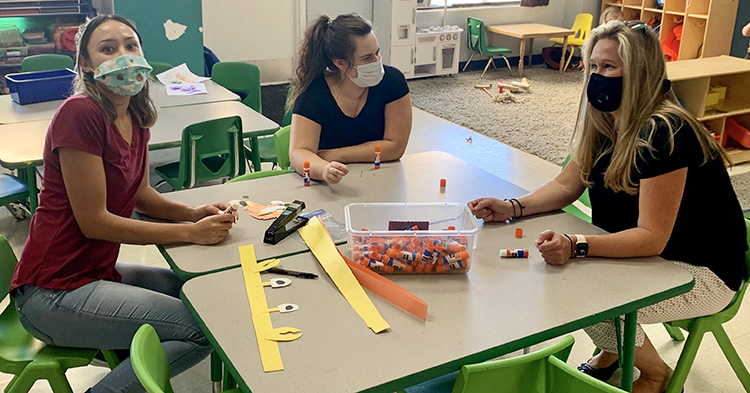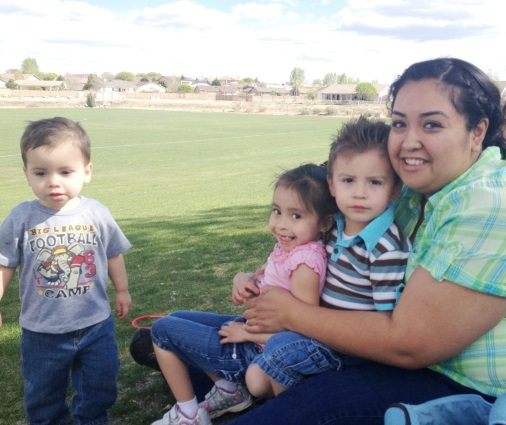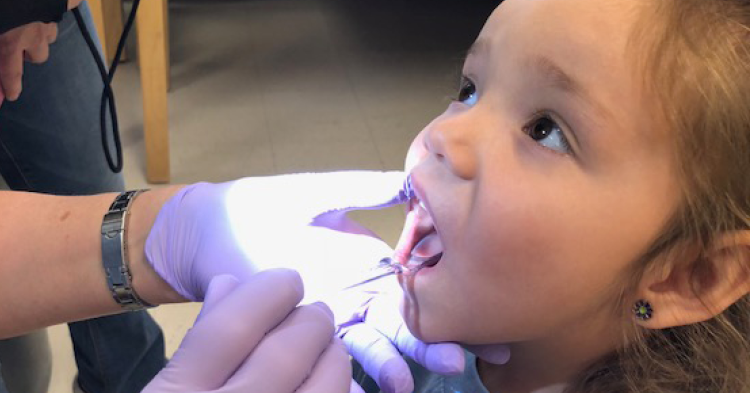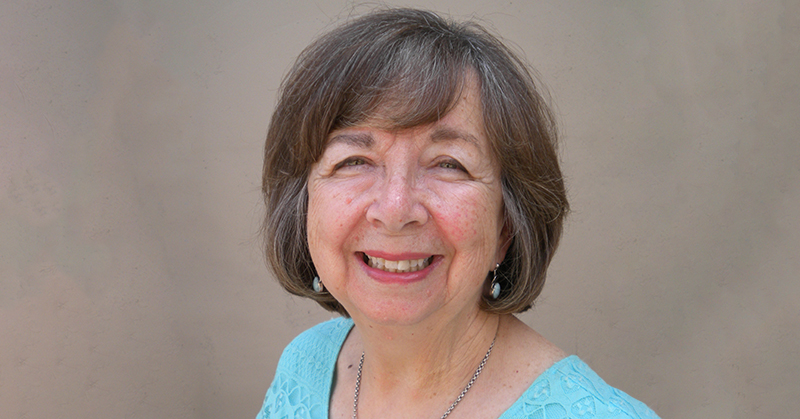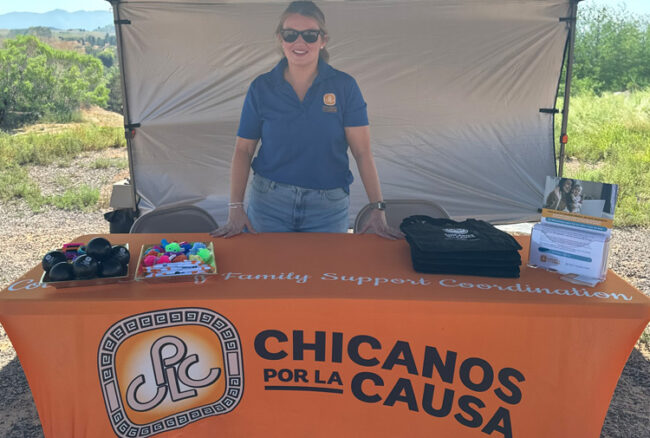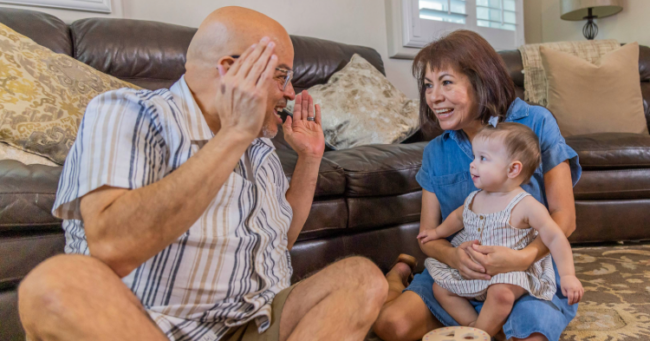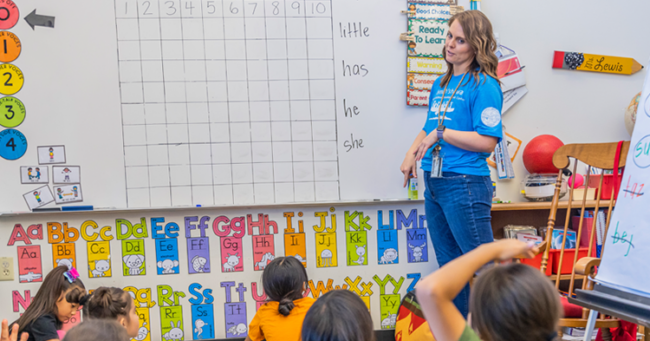
For years, improving how families with young children get connected to health and family support services in Yavapai County has been a priority for the First Things First Yavapai Regional Council.
Although the regional council funds specific programs and services, the number of families reached is sometimes limited. Over time, regional council members also recognized that there were community-wide circumstances that lead to families needing and seeking support services. They saw the need to make sure that any family in the Yavapai community that is looking for services would be able to find a connection for help.
“There are services available to families with children who need them, but families often don’t know about them or how to get them,” said FTF Yavapai Regional Director Lisa Blyth. The FTF Yavapai Region includes communities such as Prescott, Prescott Valley, Camp Verde, Dewey-Humboldt, Bagdad and Yarnell.
Blyth has been focused on working with the FTF Yavapai Regional Partnership Council and community partners such as pediatric health care providers, family-serving community based organizations, public health groups and government agencies. The goal is improving collaboration among system partners and providers to increase access and enhance the health and wellness of young children and their families.
You might be interested in:

First Things First Yavapai Region honored with Eddie Basha Award for Leadership and Service
The First Things First Yavapai Regional Partnership Council received the Eddie Basha Award for Leadership and Service in 2022. The award highlights the council’s systems change approach to improving health and family support in the Yavapai region.
Read more
Grant awarded to expand systems change
A recently awarded Vitalyst Health Foundation grant is expected to expand the systems change work within the area of children’s health that the regional council has been funding over the past years. The systems change approach is described as shifting conditions that keep barriers in place. It’s about looking for opportunities to adjust how organizations work together to deliver services, so that families can more easily find and use those services.
Blyth likes to borrow a phrase from a colleague that calls health systems change “a 20-year overnight success. The final results are typically what get the enthusiastic spotlight, but it takes a lot of time, effort and supporting circumstances to get to that point.”
“The FTF Yavapai Regional Council funded the initial efforts of the work with the intent of it becoming ‘owned’ by the community and eventually financially sustained outside of FTF,” Blyth said. “The award of this grant means the work is clearly moving in that direction. Also, the work is centered around deliberately building the use of the closed loop referral system called CommunityCares, specifically in Yavapai and being a good partner in a statewide initiative to create a comprehensive and viable, statewide closed loop referral system.”
Closed loop referral system
Arizona’s closed loop referral system, CommunityCares, is funded through the Arizona Health Care Cost Containment System (AHCCCS) across the state. It is a tool that helps AHCCCS health care providers and community-based organizations quickly and efficiently screen and refer for health-related social needs, which are known as social determinants of health or non-medical factors that affect a family’s health and wellness.
“At every community meeting I attended in Yavapai County in health and human services, someone would say, ‘Wouldn’t it be great to have a centralized resource and referral database to find information on what everyone is doing?’” Blyth said. She pointed to local resources that have come and gone that provided community resources and the current statewide AZ 211, which also provides resources and referrals. But nothing is all encompassing of the resources available or easy for families to use.
In 2021, the regional council opted to invest money in developing a deeper understanding of what resources exist and the support services families say they need. This resulted in a large-scale community assessment of Yavapai’s health systems.
At the direction of the regional council, Northern Arizona University Center for Health Equity Research came on board to implement recommendations from the assessment and help guide specific health systems change work. They also recruited members to a collective impact steering committee, Yavapai Communities for Young Children. The name is a call back to a decades-old early childhood coalition in Yavapai County.
“One of the cornerstones of systems change is adjusting policy or processes if you want things to shift at the community level,” Blyth said. “And changing a policy is easier if you have leaders of organizations at the planning table who can make those decisions within their own organizations.”
This is why the steering committee includes executive leadership from behavioral health agencies, the health department, Dignity Health and the justice system, as well as a city council member, leaders from Prescott College and a local city library.
Goal is easier access for families
As more and more health care organizations and community-based organizations begin using the closed loop referral system, the natural result is that families will experience easier access to the resources they need, Blyth said. “That’s the system change – that the service providers in the system function together differently, making things easier and more accessible for families.”
The Vitalyst grant will help support recruitment of health care organizations and community-based organizations into CommunityCares.
Blyth expects the workgroup to be able to see strong threads of areas of need and how families are finding resources.
“The use of the closed loop referral system will produce data that informs us of what resources are being used, by whom, as well as, where and what additional resources are needed,” she said.
Eventually, the group hopes to move onto other initiatives that support children’s health and wellness, Blyth said. These include increasing the number of children’s medical providers in the region, making sure that all children have medical insurance and increasing developmental screenings to prevent learning challenges later in life.
“We are investing time, energy and people to make a difference for people who live and work here,” Blyth said. “It’s hard because it takes so much time and you don’t get immediate results. But you start to realize that if you shift the cogs, even a little, it changes how every cog in that wheel moves.”


